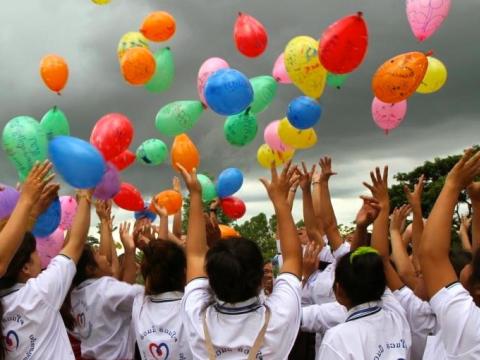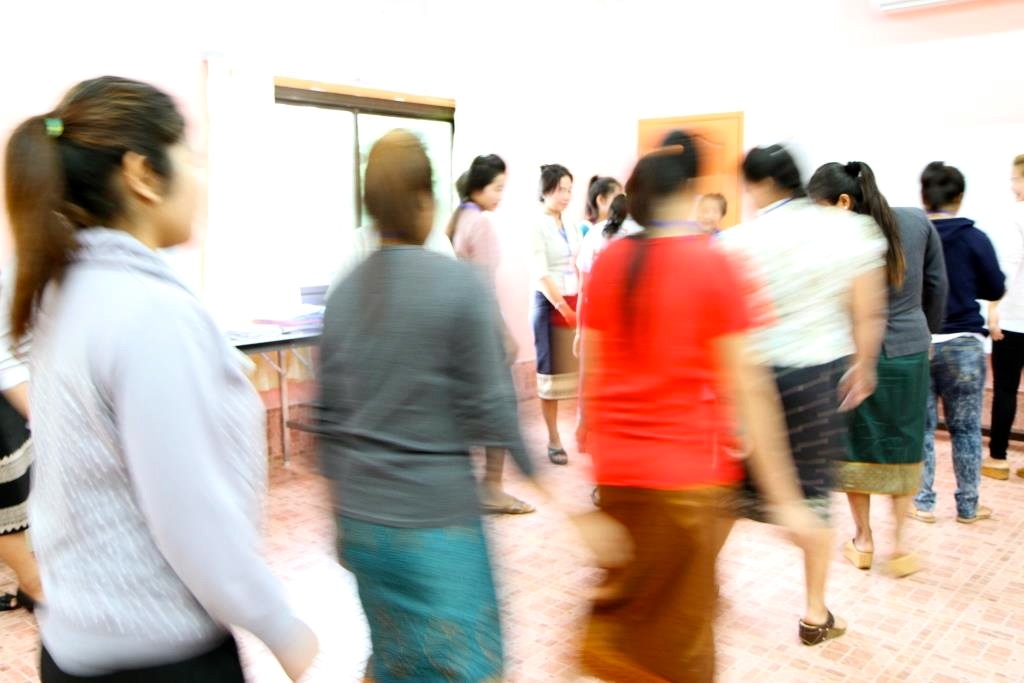Building a Network for Survivors - Combatting Human Trafficking

Building the first network for human trafficking survivors in Lao is underway. The National and provincial divisions of the Ministry of Labour and Social Welfare together with the End Trafficking in Person Project of World Vision Lao, who provided technical and financial support, met in Savannaket to create an opportunity for human trafficking survivors to engage in trafficking prevention.
“It is good opportunity so that survivors can share their experiences and learn from each other. In the future, we would like to identify some of them to help us work as volunteers by educating other youth,” Mr. Chansamon Aliyavong, Head Office of Savannaket Provincial Labour and Social Welfare said at the workshop.
Kaysone Maykhambou, Project Manager of human trafficking prevention at World Vision Lao emphasized, “The purpose of creating an internal network for human trafficking survivors is first to provide an opportunity for survivors to know one another, learn about life skills, and about human trafficking prevention and promotion of safe migration practices.”
He continued, “The second is creating the spaces for survivors to share their recommendations for us to improve our activities on human trafficking prevention, victim protection and re-integration, as well as identify the challenges for survivors before they return to their family and community.”
Sessions on learning about self-worth were also conducted. Survivor Manichan, 17, from Xaiyabouly shared in front of the entire group, “I found I have value. I need to be brave to share my lessons learned to keep other youth safe.”
Survivors also shared their personal experiences with World Vision and government counterparts to identify the entrance points to prevent human trafficking in Lao. To provide advice based on their experiences, survivors wrote down messages they wanted to share with others who dream of leaving home to work in neighboring countries.
“I want to tell other youth; do not believe people who want to help you work abroad,” warned Seng. She left home to work in Thailand when was just 12 years old. Seng was forced to work in the seafood processing industry for more than 12 years with very little pay. When she was finally rescued, she returned home with signs of severe trauma. With the support of World Vision and her family, Seng finally has the chance for recovery.
After the completion of the workshop, there were more than 50 people committed to the human trafficking survivor network and to fight all form of human trafficking in Lao. In addition to World Vision, the committed group included: 23 victims of human trafficking, government counterparts, and international partners from AFESIP, Village Focus International, and FIDA.
Survivors enjoy traditional Lao dancing during one of the sessions.
Laos is a source, a transit point, and a destination for human trafficking for women, children, and men. The Lao Ministry of Labour and Social Welfare reported that between 2001-2013, more than 2,000 Lao nationals were repatriated from Thailand; of these 95% were female and 80% under the age of 18.
World Vision is currently implementing the End Trafficking in Persons (ETIP) Program that covers Cambodia, China, Laos, Myanmar, Thailand, and Vietnam. The goal of the ETIP Program is to protect victims of human trafficking, prevent those who are vulnerable to trafficking and support policy advocacy.



